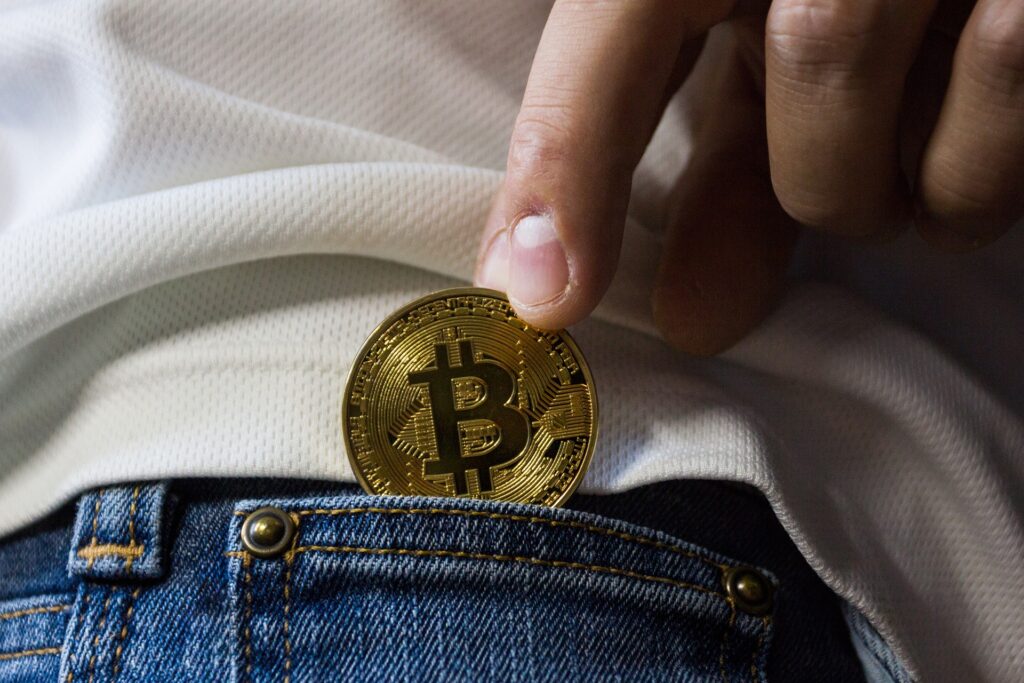Protecting Yourself From a Bitcoin Ponzi Scheme
by Admin Istrator | March 18, 2022 9:05 pm

Bitcoin Ponzi schemes hit an all-time high in 2021 compared to a year earlier, hitting a record-high of 14 billion in total crypto assets stolen dollars. Some of the scams were perpetrated technologically, utilizing programmatic means to swindle money from investors due to some bug in the underlying cryptocurrency technology. But a primary way of bilking cryptocurrency investors of their hard-earned money is through an age-old scheme whose origins date back to the 1800s, even though it only got its name in the 1920s—the notorious Ponzi scheme[1].
A Ponzi scheme is when “gains” are paid to earlier investors from funds brought in by later investors. The money is not actually invested at all but used to pay previous investors and so gives the illusion of successful returns. Some of the remaining funds are then siphoned off to line the fraudsters’ pockets.
The underlying “investments” in Ponzi schemes are just a smokescreen—nothing is actually invested—and creative fraudsters have used everything from emus to astrology-predicted futures contracts to comic book rights to create those smokescreens.
And now they’re using cryptocurrency and bitcoin.
Why are Bitcoin Ponzi schemes becoming popular?
Swindlers rely on the complicated nature of cryptocurrency to lure unsuspecting investors into their schemes. The way Bitcoin and other cryptocurrencies work is fairly intricate. Fraudsters leverage the lack of technical knowledge of laypeople, confusing them with mumbo jumbo and promises of high returns because those lack the technical understanding necessary to spot the holes in the scheme.
Every Ponzi scheme has certain telltale signs, though, and knowing how to spot any investment scam—whether it’s astrology-backed futures contracts or Bitcoin—is essential to avoid falling for one of these scams. Some common telltale signs of any Ponzi scheme include[2]:
- High returns with low risk
- Promises of “overly consistent returns” (this should be the reddest of red flags with Bitcoin investments because Bitcoin is volatile by nature and can just as likely turn investors into paupers[3] as it can turn them into millionaires)
- Complicated strategies
Fraudsters also hype up the fact that cryptocurrency is new tech and so is still expecting its “boom” phase. This has resulted in various bitcoin ponzi schemes.
How common are cryptocurrency Ponzi schemes?
A number of high-profile—and high-value—Ponzi schemes have made headlines in recent years. In 2019, the China-based cryptocurrency wallet PlusToken promised high returns for users if they purchased the wallet’s PLUS token, in addition to Bitcoin. Typical of a Ponzi scheme, the sales pitch was that those PLUS tokens would bring returns through supposedly legitimate practices such as mining coins. (“Mining” is a procedure by which new cryptocurrency coins are generated.)
In truth, PlusToken was simply bilking users of their cash, and using income from later “investors” to pay earlier investors. In all, PlusToken attracted[4] $3 billion in funds. Although arrests were made in relation to the scam, much of the funds were still at large the last time we checked.
This is another reason Bitcoin Ponzi schemes and cryptocurrency Ponzi schemes are becoming popular—the untraceability of funds is an attractive lure for cybercriminals.
OneCoin was another notorious Bitcoin Ponzi scheme that allegedly fleeced $4 billion from investors. Run by self-styled “cryptoqueen” Ruja Ignatova—who reportedly[5] managed to purchase a £13.5 million penthouse in London even after pleading guilty to fraud—OneCoin was shut down by authorities in 2017. Perhaps the biggest shock of all is that OneCoin didn’t even trade cryptocurrencies. There wasn’t even a blockchain behind it. The entire thing was an elaborate, perfectly executed scam of enormous proportions—nothing but smoke and mirrors.
As for the cryptoqueen—she disappeared in 2017 and hasn’t been seen since.
In 2018, the founder of GainBitcoin—another bitcoin Ponzi scheme—was arrested for cryptocurrency fraud. GainBitcoin was an India-based “cloud mining solution” that in fact carried out no mining at all and did not even have any mining equipment. Unfortunately, the 8,000 defrauded Indian investors who paid $300 million into the scheme will likely never recoup their losses.
Bitconnect was a Bitcoin lending platform that promised returns of up to 40% per month! The UK soon threatened to shut down BitConnect, followed by U.S. authorities taking action as well. In 2021, BitConnect’s director pled guilty[6] to running a $2 billion scam. Although there is some effort[7] to try and compensate victims, a rule of thumb with Ponzi schemes is that it is highly unlikely that all victims will get their funds back, and almost certainly not the full amount of lost funds.
Closer to home, Trendon T. Shavers was found guilty[8] in 2014 of running a Bitcoin Ponzi scheme where he lured buyers with high weekly returns through a purported method of selling bitcoin “off the radar.”
How to protect yourself against a Bitcoin Ponzi scheme
As you can see, Bitcoin and cryptocurrency Ponzi schemes add up to billions of stolen dollars. Always do your research regarding any investment you are being offered. Deal only with registered securities and licensed financial advisers and/or brokers. And if the adviser/broker you are dealing with is not licensed, that’s an enormous red flag.
Do a background check on anyone who is trying to sell you an investment. In the case of the “cryptoqueen” mentioned above, there were already fraud charges levied against her in Germany by the time she began working with OneCoin. Although an internet search might not have revealed those fraud charges easily, it does go to show that a thorough background check can save investors a lot of heartache.
Contact MDF Law
If you or someone you know lost money in a Bitcoin Ponzi scheme, contact MDF Law for a free and confidential consultation.
- Ponzi scheme: https://mdf-law.com/practice-groups/securities-litigation/ponzi-schemes/
- include: https://www.investor.gov/protect-your-investments/fraud/types-fraud/ponzi-scheme
- paupers: https://www.forbes.com/sites/jenniferwang/2021/05/19/crypto-billionaires-have-lost-155-billion-in-nine-days-amid-crash/?sh=78214f962981
- attracted: https://bitcoinmagazine.com/articles/how-the-plustoken-scam-absconded-with-over-1-percent-of-the-bitcoin-supply
- reportedly: https://www.bbc.com/news/stories-59062959
- pled guilty: https://www.justice.gov/usao-sdca/pr/director-and-promoter-bitconnect-pleads-guilty-global-2-billion-cryptocurrency-scheme
- some effort: https://www.justice.gov/opa/pr/56-million-seized-cryptocurrency-being-sold-first-step-compensate-victims-bitconnect-fraud
- found guilty: https://www.sec.gov/litigation/litreleases/2014/lr23090.htm
Source URL: https://mdf-law.com/bitcoin-pinzi/